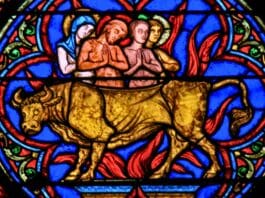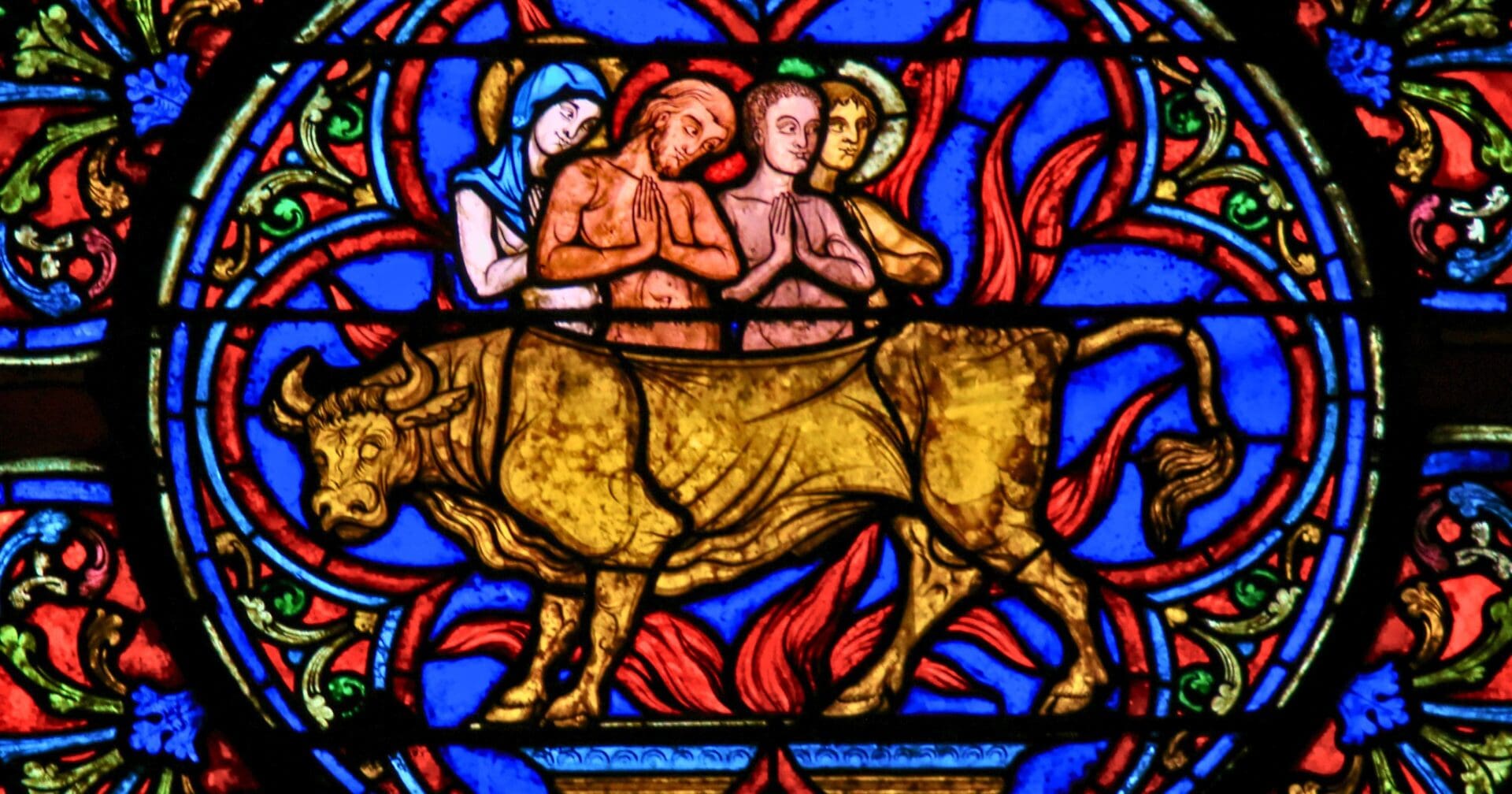
Saint Eustace, originally a Roman general named Placidus, experienced a profound conversion during a hunting trip.
As he was chasing a majestic stag, the animal suddenly turned to face him. Remarkably, nestled between its antlers, Placidus perceived a crucifix. Accompanying this vision was a voice that identified itself as Jesus, revealing to Placidus that he was unknowingly venerating Him. This voice further prophesied that Placidus would endure sufferings for his faith.
Embracing this divine calling, Placidus, along with his wife and two sons, were baptized as Christians. He took the name Eustace, and his family’s names became Theopista, Agapetus, and Theopestus. However, their newfound faith brought challenges; Eustace was publicly denounced as a Christian, leading to the confiscation of his property and the loss of his family, who were taken away.
Emperor Trajan, recognizing his abilities as a general, later summoned Eustace back to fend off barbarians threatening Rome. Successfully repelling the invaders, Eustace and his family, now all devout Christians, stood firm in their faith by declining to offer sacrifices to the pagan gods during the victory celebrations.
Infuriated by their defiance, Trajan ordered the family to be thrown to the lions. But instead of attacking, the lions gently played around them. Seeing this, the authorities then decided to seal Eustace and his family inside a bronze bull, subjecting them to a horrifying death by roasting.
Today, Saint Eustace is honored as one of the Fourteen Holy Helpers and is venerated especially by hunters. Artistic depictions often portray him in noble attire alongside the iconic stag with the crucifix between its horns.
Editorial credit: jorisvo / Shutterstock.com
The post Saint Eustace appeared first on uCatholic.
Daily Reading
Thursday of the Second Week in Ordinary Time
Reading 1 Hebrews 7:25—8:6 Jesus is always able to save those who approach God through him, since he lives forever to make intercession for them. It was fitting that we…
Daily Meditation
Finding Solace in Jesus
Click here for daily readings “He had cured many, and, as a result, those who had diseases were pressing upon him to touch him” (Mk 3:10). This scene opens with…




